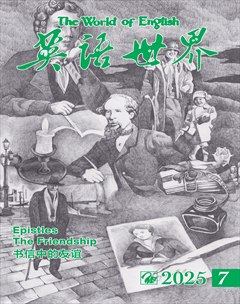Every summer of my child and teenagehood was peppered with cookouts1. After the passing of my grandfather—the true patriarchal glue of that side of my family—the large, food-centric gatherings ceased. Last month was the third anniversary of his death and it got me thinking about these cookouts that took me years to really appreciate and cherish. How memories of eating pulled pork, ribs, chicken, hot dogs, and hamburgers would end up bringing me comfort when I least expected it. It really cemented the idea of barbecues being universal to the Black American experience.
户外烧烤填满了我童年和青少年的每个夏天。但当家族的真正父权纽带——我的祖父过世后,这些以食物为中心的大型聚会就销声匿迹了。上个月是他老人家的3周年忌日,一下子将我的思绪拉回到数年后才欣赏和珍视的烧烤聚会中。那些吃手撕猪肉、肋排、鸡肉、热狗和汉堡包的记忆,会在不经意间给我带来慰藉。我的经历切实强化了烧烤在美国黑人经历中普遍存在的观念。
Barbecue aka BBQ is an integral cuisine to Black history and, by default, American history. But its roots are traced to Indigenous Caribbeans. In Adrian Miller’s new book Black Smoke: African Americans and the United States of Barbecue, he writes that the earliest account of what we think of barbecue as today goes back to 1513 when Taíno, the Indigenous People of the Caribbean discovered Christopher Columbus and his crew stealing and eating all of their meats being cooked over green, wood fires—including rabbit, fish, and “serpents2,” which were believed to be iguanas.
烧烤,也被称为BBQ,是黑人历史不可或缺的佳肴,当然,也是美国历史中不可或缺的一部分,而其本源可以追溯到加勒比地区的原住民。阿德里安·米勒的新书《黑烟:非洲裔美国人和美国烧烤》中提到,我们今天所认为的烧烤的最早记录可以追溯到1513年,当时加勒比地区的土著民泰诺人发现克里斯托弗·哥伦布和他的船员偷吃了他们所有的肉。肉是用新鲜木柴生火烤制的,包括兔子、鱼和“大蛇”——当时的人们认为那是鬣蜥。
The exact origins of the word “barbeque” are a little unclear and messy, much like a good sauce. But the word “barbacoa,” which is where our current term is adapted from, is attributed to what the Spanish called the Indigenous Peoples’ way of cooking meats over a wooden platform.
barbeque一词的确切起源有些模糊和混乱,就像一种美味的酱料。但barbacoa一词,也就是barbeque的来源,据说来自西班牙人对当地原住民在木台上烹肉方法的称呼。
“When you hear about the early history of barbecue, the Native Americans are kind of a side note, right?” Miller tells us. “It’s just like, ‘Oh, some Europeans noticed how Native Americans were cooking and they took it over, added their European animals, took that from the Caribbean to the American South and barbecue was formed.’ And that just never really made sense to me because that ignores what Indigenous People and the American South were already doing before Europeans showed up.”
“当你听说烧烤的早期历史时,美洲原住民就像个注脚一样微乎其微,对吧?”米勒同我们讲,“就好像,‘哦,一些欧洲人注意到美洲原住民是如何烹饪的,他们就把它拿来,加上欧洲的动物食材,再从加勒比地区带到美国南方,于是烧烤就这样诞生了。





